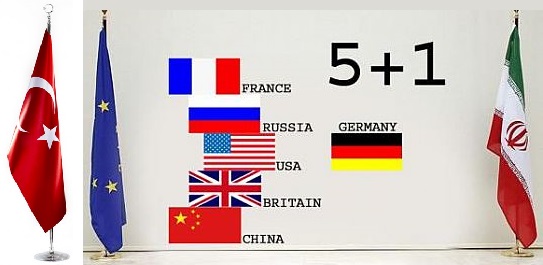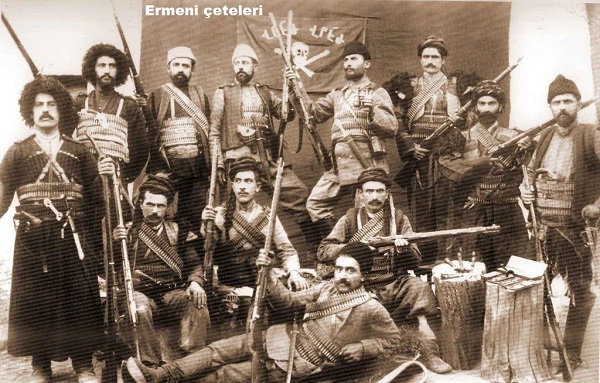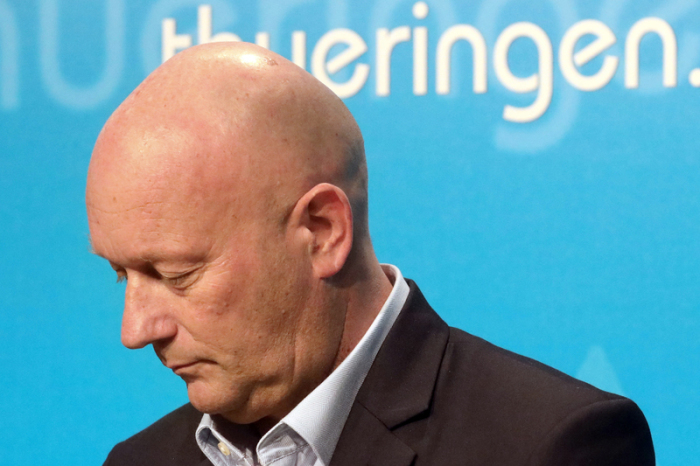
The US Trump Administration’s decision on May 8 to unilaterally withdraw from the Joint Comprehensive Plan of Action (JCPOA), commonly known as the Iran Nuclear Deal, has increased global interest in the issue of nuclear weapon proliferation. JCPOA is an agreement that makes references to the Treaty on the Non-Proliferation of Nuclear Weapons (NPT), which represents the global nuclear non-proliferation regime. JCPOA builds upon the groundwork laid by NPT and has the potential to further its effectiveness. Any development that will negatively affect JCPOA has the potential to affect NPT in the long run as well. Since Turkey is a neighbor of Iran and one of the most loyal adherents of the NPT, it would be beneficial at this juncture to analyze the NPT and JCPOA from the perspective of Turkey.
An Introduction to the Treaty on the Non-Proliferation of Nuclear Weapons
The 1968 Treaty on the Non-Proliferation of Nuclear Weapons (NPT) seeks to accomplish three critically-important objectives. These are: 1) The prevention of the spread of nuclear weapons and its technology, 2) The promotion of cooperation on peaceful uses of nuclear energy, and 3) The achievement of nuclear disarmament. So far, 191 states have joined the NPT, which includes the five legally-recognized nuclear-weapon states within the framework the Treaty (these states are: China, France, Russia, the United Kingdom, and the United States).[1]
Describing the importance and functioning of the Treaty, the United Nations Office for Disarmament Affairs (UNODA) states;
“The Treaty represents the only binding commitment in a multilateral treaty to the goal of disarmament by the nuclear-weapon States. […] To further the goal of non-proliferation and as a confidence-building measure between States parties, the Treaty establishes a safeguards system under the responsibility of the International Atomic Energy Agency (IAEA). Safeguards are used to verify compliance with the Treaty through inspections conducted by the IAEA. The Treaty promotes cooperation in the field of peaceful nuclear technology and equal access to this technology for all States parties, while safeguards prevent the diversion of fissile [nuclear] material for weapons use.”[2]
In this respect, the NPT has three main pillars: 1) non-proliferation, 2) disarmament, and 3) peaceful use of nuclear energy. As explained by Turkey, “The ‘grand bargain’ on which the NPT regime is founded rests upon these three inseparable and mutually reinforcing pillars.”[3]
The first pillar of NPT, non-proliferation, obliges nuclear weapon states not to transfer nuclear weapons or other nuclear explosive devices to other actors. The Treaty also obliges nuclear weapon states to not in -any way- assist, encourage, or induce any non-nuclear weapon state in the manufacture or acquisition of nuclear weapons.[4]
According to second pillar, disarmament, “each of the Parties to the Treaty undertakes to pursue negotiations in good faith on effective measures relating to cessation of the nuclear arms race at an early date and to nuclear disarmament, and on a treaty on general and complete disarmament under strict and effective international control”.[5]
The third pillar, the peaceful use of nuclear energy, recognizes “the inalienable right of all the Parties to the Treaty to develop research, production and use of nuclear energy for peaceful purposes without discrimination”[6] and in conformity with their non-proliferation obligations. According to the third pillar, “All the Parties to the Treaty undertake to facilitate, and have the right to participate in, the fullest possible exchange of equipment, materials and scientific and technological information for the peaceful uses of nuclear energy”[7] and parties to the Treaty are urged to cooperate with other states or international organizations for the development of nuclear energy for peaceful purposes. This last point is especially relevant concerning the use of nuclear energy for peaceful purposes “in the territories of non-nuclear-weapon States Party to the Treaty, with due consideration for the needs of the developing areas of the world.”[8] According to the third pillar, nuclear energy technology and materials may be transferred to states party to the NPT for the development of nuclear technology as long as these states are compliant with the NPT.
Turkey’s Role in NPT
Turkey signed the NPT in January 1969 and ratified it in April 1980. According to UNODA treaties database, Turkey’s ratification document accompanied the following statement:
“The Government of the Republic of Turkey decided to deposit today the instrument [document] of ratification of the Treaty on the Non-Proliferation of Nuclear Weapons.
...
The Turkish Government is convinced that the Treaty is the most important multilateral arms control agreement yet concluded. By reducing the danger of a nuclear war, it greatly contributed to the process of detente, international security and disarmament.
Turkey believes that her adherence would further the universality of the Treaty and strengthen international nuclear non-proliferation system. It is however evident that cessation of the continuing arms race and preventing the war technology from reaching dangerous dimensions for the whole mankind can only be realized through the conclusion of a treaty on general and complete disarmament under strict and effective international control. Furthermore, Turkey would like to underline the non-proliferation obligations of the nuclear-weapon states under relevant paragraphs of the Preamble and Article VI of the Treaty. Proliferation of all kinds must be halted and measures must be taken to meet adequately the security requirements of non-nuclear weapon states. Continuing absence of such assurances might have such consequences that may undermine the objectives and the provisions of the Treaty.
Having included nuclear energy in its development plan as one of the sources of electricity production, Turkey is prepared as stipulated in Article IV of the Treaty, to cooperate further with the technologically advanced states, on a non-discriminatory basis, in the field of nuclear research and development as well as in nuclear energy production. Measures developed or to be developed at national and international levels to ensure the non-proliferation of nuclear weapons should in no case restrict the non-nuclear weapon states in their options for the application of nuclear energy for peaceful purposes.”[9]
As it can be seen from the statement accompanying the ratification document, Turkey referred to the above-mentioned three pillars of the NPT, and especially focused on the importance of nuclear energy in its development plan. It underlined that measures developed or to be developed concerning the non-proliferation of nuclear weapons should in no case restrict the non-nuclear weapon states in their options for the application of nuclear energy for peaceful purposes.
It is important to note that most of the countries with advanced economies and infrastructure have utilized nuclear energy to meet their energy demands in their path towards development. While nuclear energy comes with its own set of problems (e.g. disposal of nuclear waste and possible radioactive leakage due to human error or natural disasters), no other power source comes close to providing the level of energy offered by nuclear power plants. Additionally, while clean, renewable energy technology has come a long way and shows promise, at this point, it is only able to partially support a country’s energy needs. As such, nuclear energy is one of the keys to the further development of countries with sizable populations such as Turkey. In this respect, NPT serves a key purpose for countries such as Turkey, as it allows them to pursue and acquire nuclear technology while at the same time demonstrate to the world that they have peaceful intentions.
The core issue for the successful implementation and future sustainability of the NPT is about faithfully keeping the delicate balance between the peaceful use of nuclear energy and refraining from using nuclear energy for nuclear weapon development programs. A simple news search through the Internet will attest to the fact that Turkey is among the most faithful countries to the NPT and all the other non-proliferation instruments and regimes. In this respect, Turkey serves as an exemplar NPT party that has firmly internalized the letter and spirit of the Treaty.
The Joint Comprehensive Plan of Action
The Joint Comprehensive Plan of Action (JCPOA), commonly known as the Iran Nuclear Deal, was formed in July 2015 between E3/EU+3 (France, Germany, the UK, the European Union – EU, China, Russia, and the US) and Iran is an agreement mainly dealing with the use of nuclear energy for peaceful purposes. The participants to the agreement other than Iran and the EU are frequently -and confusingly- also referred as the P5+1, P3+3, or E3+3 (E3/EU+3 is the name is used in the text of the JCPOA to designate the participants other than Iran).
JCPOA, in its preface, states that “... this historic Joint Comprehensive Plan of Action (JCPOA) which will ensure that Iran’s nuclear programme will be exclusively peaceful...” and underlines that “Iran reaffirms that under no circumstances will Iran ever seek, develop or acquire nuclear weapon.” It further states that “Successful implementation of this JCPOA will enable Iran to fully enjoy its right to nuclear energy for useful purposes under the articles of the nuclear Non-Proliferation Treaty (NPT) in line with its obligations therein…”[10]
US President Donald Trump’s recent decision to withdraw from the JCPOA not only jeopardized this important multilateral arms control instrument that monitored Iran while at same allowing it to develop peaceful nuclear technology, but also has the potential to negatively affect the implementation of the NPT system. In fact, NPT suffers from a lack of credibility and its confidence-building capacity is not at an optimum level, since there still exist countries (e.g. Israel) which are not party to the NPT and which are widely believed to possess nuclear weapons. There are also de facto nuclear-weapon states (e.g. Pakistan, India) that are not a party to the NPT. There is no doubt that non-universality of the “weakens the global nonproliferation norm and thus undermines the regime.”[11]
Iran’s potential to acquire nuclear weapons was one of the most prevalent nuclear arms control issues for the international community until the formation of the JCPOA. It should be noted that NPT has a provision on withdrawal from the Treaty. It states that “Each Party shall in exercising its national sovereignty have the right to withdraw from the Treaty if it decides that extraordinary events, related to the subject matter of this Treaty, have jeopardized the supreme interests of its country.”[12] It should be remembered that North Korea announced its withdrawal from the NPT in 2003.[13] Since then, the international community has made tremendous efforts to cope with the nuclear weapon ambitions of this country. This move should not be allowed to serve as a precedent for others. However, the US’ abrupt withdrawal from the JCPOA might damage its credibility or even cause it to collapse. The weakening or collapse of the JCPOA might, eventually, induce Iran to consider following the example of North Korea. Such a development, in turn, will accentuate the non-universality NPT and further undermine the NPT regime.
Despite its weaknesses and deficiencies, the Treaty on the Non-Proliferation of Nuclear Weapons is still deemed to be one of the cornerstones of the global non-proliferation regime. In contrast to the countries that have announced that “if Iran develops a nuclear bomb we would follow suit as soon as possible,”[14] Turkey should continue with its decent and honorable policy of full implementation of the NPT to further strengthen the NPT with all its three pillars. This will allow Turkey to be a part of the solution to nuclear proliferation and to stand against actors who act -whether intentionally or not- as a part of the problem.
[1] “Treaty on the Non-Proliferation of Nuclear Weapons (NPT),” United Nations Office for Disarmament Affairs, accessed May 20, 2018, https://www.un.org/disarmament/wmd/nuclear/npt/
[2] “Treaty on the Non-Proliferation of Nuclear Weapons (NPT).”
[3] “Statement by H.E. Ambassador Feridun Sinirlioglu. Undersecretary of the Ministry of Foreign Affairs of the Republic of Turkey at the 2010 Review Conference of the States Parties to the Treaty on the Non-proliferation of Nuclear Weapons. New York, 6 May 2010,” United Nations, accessed May 20, 2018, http://www.un.org/en/conf/npt/2010/statements/pdf/turkey_en.pdf
[4] NPT, Article I.
[5] NPT, Article VI.
[6] NPT, Article IV.
[7] NPT, Article IV.
[8] NPT, Article IV.
[9] “Turkey: Ratification of Treaty on the Non-Proliferation of Nuclear Weapons (NPT),” United Nations Office for Disarmament Affairs, accessed May 20, 2018, http://disarmament.un.org/treaties/t/npt, http://disarmament.un.org/treaties/a/npt/turkey/rat/washington, http://disarmament.un.org/treaties/a/npt/turkey/rat/london, http://disarmament.un.org/treaties/a/npt/turkey/rat/moscow
[10] “Full text of the Iran nuclear deal,” The Washington Post, accessed May 20, 2018, https://apps.washingtonpost.com/g/documents/world/full-text-of-the-iran-nuclear-deal/1651/
[11] Marvin Miller and Lawrence Scheinman, “Israel, India, and Pakistan: Engaging the Non-NPT States in the Nonproliferation Regime,” Arms Control Association, December 1, 2003, https://www.armscontrol.org/act/2003_12/MillerandScheinman
[12] NPT, Article X.
[13] Kelsey Davenport, “Chronology of U.S.-North Korean Nuclear and Missile Diplomacy,” Arms Control Association, May 17, 2018, https://www.armscontrol.org/factsheets/dprkchron
[14] Raf Sanchez, “Saudi Arabia will develop a nuclear bomb if Iran gets one, Crown Prince Mohammed bin Salman warns,” The Telegraph, March 15, 2018, https://www.telegraph.co.uk/news/2018/03/15/saudi-arabia-will-develop-nuclear-bomb-iran-gets-one-crown-prince/
© 2009-2025 Center for Eurasian Studies (AVİM) All Rights Reserved
No comments yet.
-
 DASHNAK FEDAIS: HEROES OR CALAMITIES OF THE ARMENIAN PEOPLE?
DASHNAK FEDAIS: HEROES OR CALAMITIES OF THE ARMENIAN PEOPLE?
AVİM 20.12.2019 -
 EXTREME RIGHT IS GAINING STRENGTH IN GERMANY
EXTREME RIGHT IS GAINING STRENGTH IN GERMANY
Hazel ÇAĞAN ELBİR 21.02.2020 -
 SOVEREIGNTY AND SYNERGY: INTEGRATING MONTREUX CONVENTION COMPLIANCE INTO EU BLACK SEA SECURITY ARCHITECTURE
SOVEREIGNTY AND SYNERGY: INTEGRATING MONTREUX CONVENTION COMPLIANCE INTO EU BLACK SEA SECURITY ARCHITECTURE
Teoman Ertuğrul TULUN 01.07.2025 -
 GREECE ATTEMPTS TO FORGE ANOTHER FRONT AGAINST TÜRKİYE WITH A PONTIC NARATIVE
GREECE ATTEMPTS TO FORGE ANOTHER FRONT AGAINST TÜRKİYE WITH A PONTIC NARATIVE
Teoman Ertuğrul TULUN 01.07.2025 -
 THE KARABAKH CONFLICT AND THE LAWFARE OF ARMENIA: ARMENIA’S CAMPAIGN FOR REMEDIAL SECESSION (I)
THE KARABAKH CONFLICT AND THE LAWFARE OF ARMENIA: ARMENIA’S CAMPAIGN FOR REMEDIAL SECESSION (I)
Turgut Kerem TUNCEL 27.10.2020
-
25.01.2016
THE ARMENIAN QUESTION - BASIC KNOWLEDGE AND DOCUMENTATION -
12.06.2024
THE TRUTH WILL OUT -
27.03.2023
RADİKAL ERMENİ UNSURLARCA GERÇEKLEŞTİRİLEN MEZALİMLER VE VANDALİZM -
17.03.2023
PATRIOTISM PERVERTED -
23.02.2023
MEN ARE LIKE THAT -
03.02.2023
BAKÜ-TİFLİS-CEYHAN BORU HATTININ YAŞANAN TARİHİ -
16.12.2022
INTERNATIONAL SCHOLARS ON THE EVENTS OF 1915 -
07.12.2022
FAKE PHOTOS AND THE ARMENIAN PROPAGANDA -
07.12.2022
ERMENİ PROPAGANDASI VE SAHTE RESİMLER -
01.01.2022
A Letter From Japan - Strategically Mum: The Silence of the Armenians -
01.01.2022
Japonya'dan Bir Mektup - Stratejik Suskunluk: Ermenilerin Sessizliği -
03.06.2020
Anastas Mikoyan: Confessions of an Armenian Bolshevik -
08.04.2020
Sovyet Sonrası Ukrayna’da Devlet, Toplum ve Siyaset - Değişen Dinamikler, Dönüşen Kimlikler -
12.06.2018
Ermeni Sorunuyla İlgili İngiliz Belgeleri (1912-1923) - British Documents on Armenian Question (1912-1923) -
02.12.2016
Turkish-Russian Academics: A Historical Study on the Caucasus -
01.07.2016
Gürcistan'daki Müslüman Topluluklar: Azınlık Hakları, Kimlik, Siyaset -
10.03.2016
Armenian Diaspora: Diaspora, State and the Imagination of the Republic of Armenia -
24.01.2016
ERMENİ SORUNU - TEMEL BİLGİ VE BELGELER (2. BASKI)
-
AVİM Conference Hall 24.01.2023
CONFERENCE TITLED “HUNGARY’S PERSPECTIVES ON THE TURKIC WORLD"









